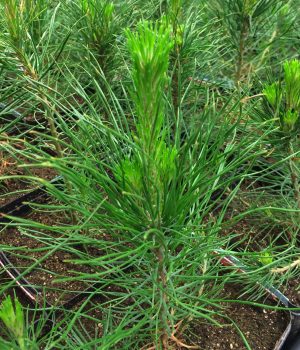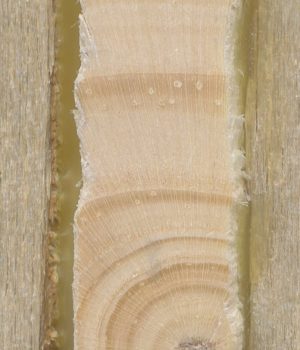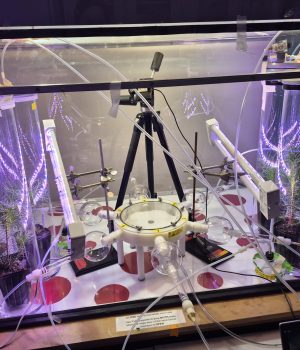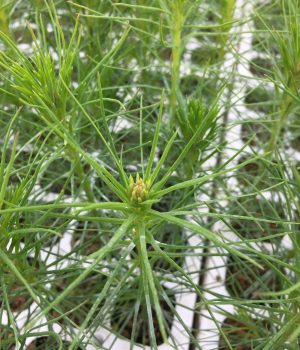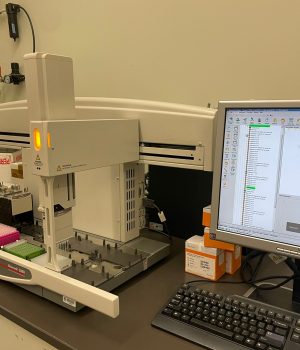Activity 2
Lodgepole pine genetic resilience to mountain pine beetle
Goal: Identify the genetic basis for lodgepole pine resilience to mountain pine beetle and determine the impact of resilience on mountain pine beetle population dynamics.
In this activity, we are using population genomics, quantitative genomics, transcriptomics and a suite of phenotyping approaches to determine
(a) whether we are able to genetically discriminate progeny of mountain pine beetle-killed and mountain pine beetle-survivor lodgepole pine representing independent families from the Lindgren collection,
(b) host quality traits that distinguish progeny of mountain pine beetle-killed and mountain pine beetle-survivor lodgepole pine,
(c) if any genes identified in the above experiments whose allele frequencies or expression patterns differ between progeny of mountain pine beetle-killed and mountain pine beetle-survivor lodgepole pine are involved in conditioning host quality traits, and
(d) if there are growth-defense tradeoffs exhibited by progeny of mountain pine beetle-killed and mountain pine beetle-survivor lodgepole pine.
Insights gained from these analyses are important for breeders to make informed choices about incorporating mountain pine beetle resilience into tree improvement programs.
Deliverables related to Activity 2:
- Validated genomic selection models and SNP panels
- Identification of traits contributing to lodgepole pine host quality
- Models that assess the influence of mountain pine beetle-resilient trees on mountain pine beetle outbreak dynamics
